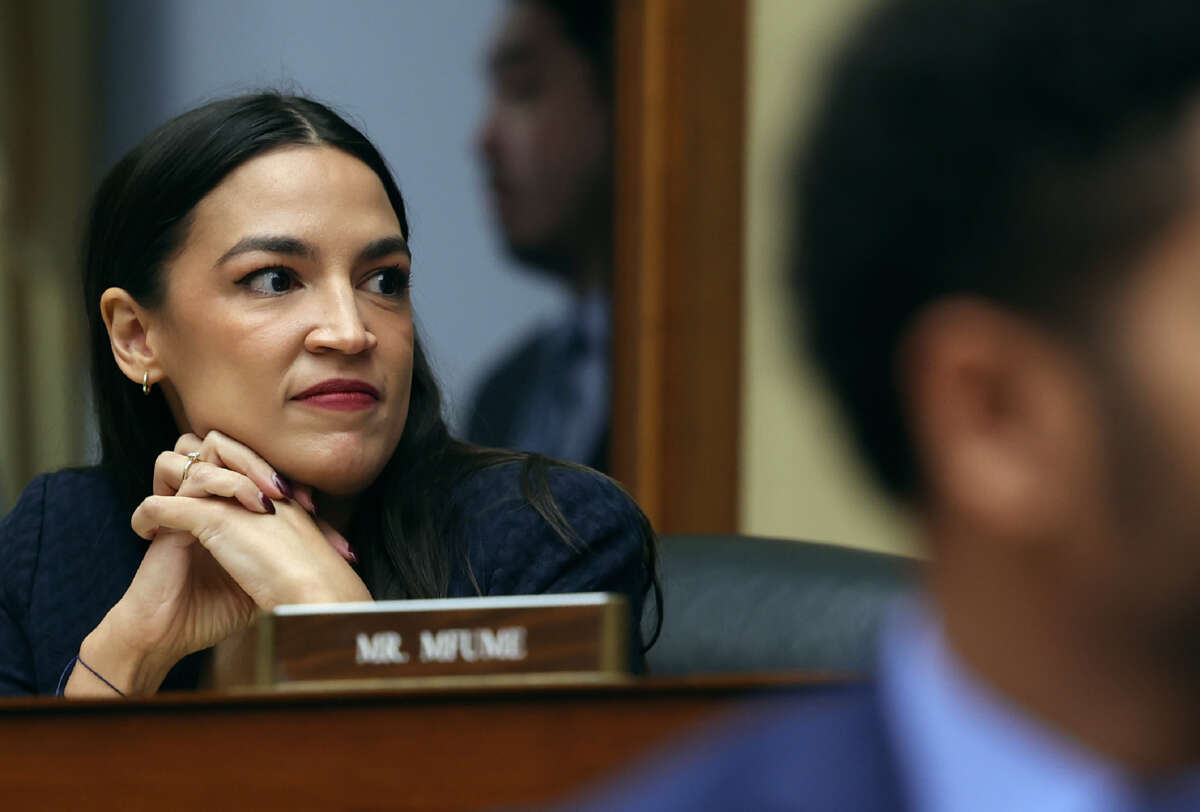Did you know that Truthout is a nonprofit and independently funded by readers like you? If you value what we do, please support our work with a donation.
Rep. Alexandria Ocasio-Cortez (D-New York) has condemned congressional conservatives’ recent efforts to ban TikTok in the U.S., saying that a ban wouldn’t come close to addressing real problems of data privacy risks.
On Friday, in her first ever video posted to TikTok, Ocasio-Cortez said that TikTok shouldn’t be banned and that Congress should instead focus on the threat that tech companies like Meta pose to data privacy generally.
Focusing solely on TikTok is “putting the cart before the horse,” she said, adding that Congress isn’t acting in the interest of the public if it can’t provide to the public evidence that TikTok is uniquely bad when it comes to data collection. She also noted that TikTok’s ability to operate in the U.S. isn’t the real problem.
“Some of the arguments about banning TikTok have come with respect to discussions around Chinese surveillance and utilization of data that is tracked and the enormous amount of tracking on U.S. citizens and data that is harvested by TikTok. And they say because of this egregious amount of data harvesting, we should ban this app,” said Ocasio-Cortez.
“However, that doesn’t really address the core of the issue, which is the fact that major social media companies are allowed to collect troves of deeply personal data about you that you don’t know about, without really any significant regulation whatsoever,” she continued. “In fact, the United States is one of the only developed nations in the world that has no significant data or privacy protection laws on the books.”
She brought up the example of the EU’s General Data Protection Regulation (GDPR), which places guardrails around individuals’ personal information, including limits on what information organizations can collect and sell. Data privacy experts have pointed out many flaws with GDPR, such as allowing police to access facial recognition data, in part due to issues with uneven enforcement of the regulations — but it is still more than the essentially no federal regulation of data privacy in the U.S.
“To me, the solution here is not to ban an individual company, but to actually protect Americans from this kind of egregious data harvesting that companies can do without your significant ability to say no,” she said.
Ocasio-Cortez posted her message in response to a Republican-led House hearing on banning TikTok last week in which conservatives’ McCarthyism and sinophobia — which Rep. Jamaal Bowman (D-New York) has pointed to as a major factor underlying the arguments against the social media company — was on full display.
Republicans barraged the TikTok CEO Shou Zi Chew with bizarre questions during the hearing on Thursday, appearing to use the hearing as a way to prove their dislike of the Chinese government.
In one widely circulated clip, a Republican asked Chew about his views on China’s persecution of Uyghurs — a question on par with if members of Congress asked Meta CEO Mark Zuckerberg about asylum seeker concentration camps at the U.S.’s southern border. Chew was asked numerous times by several lawmakers about Chinese policies, in fact, to which he had to clarify multiple times that he hails from Singapore.
Other questions showed a basic lack of understanding of how technology actually works. In one clip, Rep. Richard Hudson (R-North Carolina) essentially asked Chew whether or not accessing the internet requires WiFi access in one’s home. “So if I have a TikTok app on my phone and my phone is on my home WiFi network, does TikTok access that network?” Hudson asked.
“It will have to access the network to get connections to the internet, if that’s the question,” Chew responded.
The rhetorical arguments against TikTok didn’t hold up either. As one Mother Jones writer observed, if members of Congress followed their own logic about data collection and the harms of social media, then all social networks, including Facebook and Twitter, would also be banned. After all, TikTok is far from the only social media platform collecting and selling data — it’s not even the only social media network with ties to Chinese businesses.
Commentators have noted that banning TikTok, meanwhile, would be a huge boon for American Big Tech companies. A ban on TikTok would “be one of the biggest acts of charity toward a monopolistic American company in recent memory,” Vice wrote in an article last week. The writers pointed out that Facebook and Instagram, which are owned by Meta, “have been manipulated by foreign adversaries, make teens feel awful about themselves, allow their users to be targeted by anyone willing to pay, and have been proven to be used by white supremacists, genocidal regimes, etc.”
Press freedom is under attack
As Trump cracks down on political speech, independent media is increasingly necessary.
Truthout produces reporting you won’t see in the mainstream: journalism from the frontlines of global conflict, interviews with grassroots movement leaders, high-quality legal analysis and more.
Our work is possible thanks to reader support. Help Truthout catalyze change and social justice — make a tax-deductible monthly or one-time donation today.
